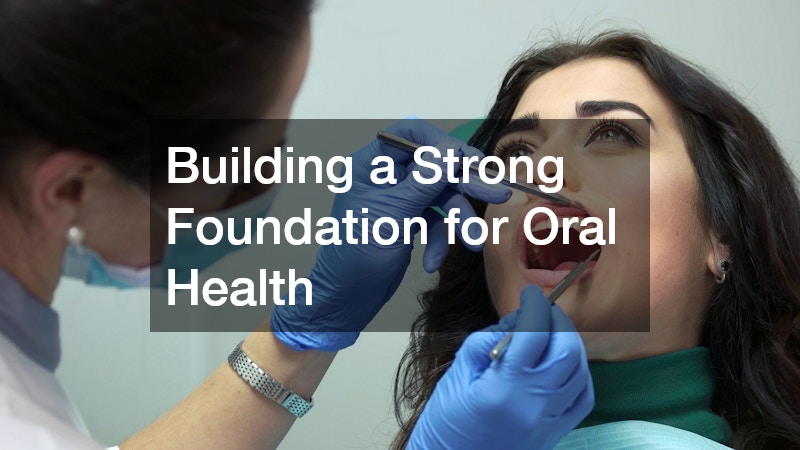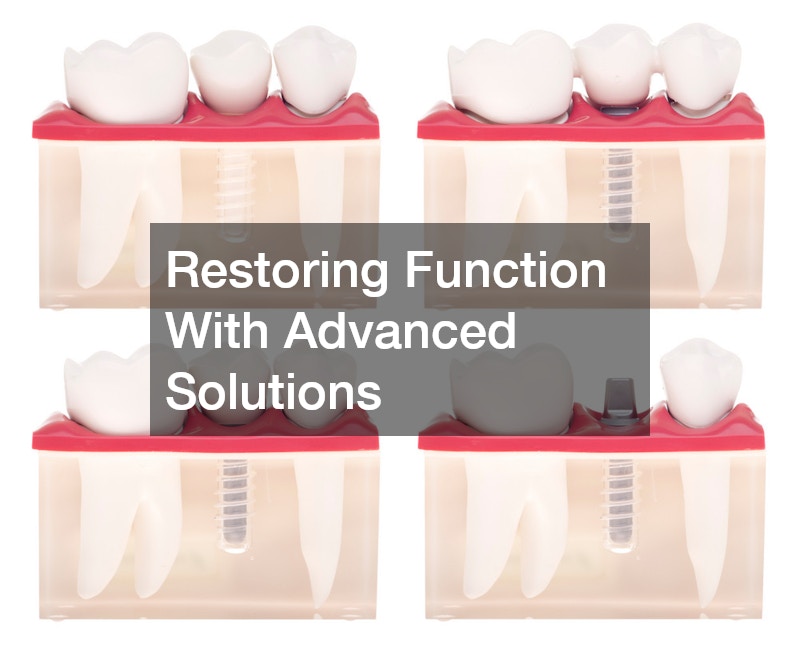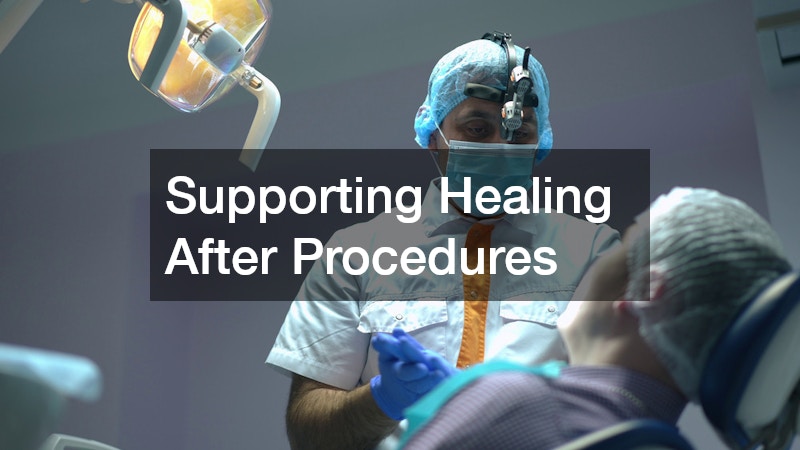Good oral health is crucial not just for achieving a beautiful smile, but also for overall wellness. A consistent hygiene routine, paired with regular visits to a trusted professional, lays the groundwork for long-term results. This article covers practical tips, treatment options, and preparations that can make visits smoother and less stressful. Understanding these elements helps ease fears and concerns often linked with treatments, turning the experience into something more manageable and positive.
The importance of maintaining oral health cannot be overstated. It plays a central role in preventing common issues like cavities and gum disease, which, if left unchecked, can escalate into more severe conditions affecting overall health. Beyond physical well-being, there are also emotional and psychological benefits, such as the confidence that comes from a healthy, attractive smile—something that impacts daily interactions and self-esteem.
In this in-depth guide, we will explore ways to build a strong foundation for lifelong habits, prepare effectively before visiting a dental professional, enhance smiles through collaborative treatments, and support healing after procedures. We will also discuss considerations for children, urgent care needs, and even unique aspects of oral health for animals. By the end, you will have a thorough understanding of how to maintain both function and appearance, ensuring that every experience at the dentist feels productive, reassuring, and tailored to your needs.

Building a Strong Foundation for Oral Health
Establishing a strong foundation for oral health begins with understanding the significance of regular dental care. Regular check-ups with a dentist help to identify potential issues before they escalate. The habit of practicing oral hygiene daily, including brushing and flossing, reinforces this foundation and sets a precedent for lifelong healthy habits.
The role of a dentist in this foundational stage cannot be overlooked. Dentists provide invaluable education about proper techniques for brushing and flossing, tailored dietary recommendations, and fluoride treatments to strengthen enamel. Furthermore, they can identify unique risk factors in individual patients, allowing for personalized dental care plans that cater to specific needs.
Utilizing the services of a local dental lab can also support your oral health. Local labs work closely with dentists to ensure that dental crowns, bridges, and other restorations are made to the highest standards. This collaboration ensures that patients receive custom solutions tailored specifically for their dental needs, ultimately reinforcing the foundation of their oral health.
Preparing Effectively Before Every Visit
Preparation for a dental appointment is vital for ensuring an efficient and productive visit. Patients should be proactive by gathering any relevant medical history details and listing out any concerns or symptoms they wish to discuss. Preparing questions to ask the dentist can clarify treatment options and create a more collaborative atmosphere during the appointment.
Additionally, it is essential to verify insurance information and be aware of any costs associated with treatments. This not only alleviates financial surprises but also helps in planning for any future dental care expenses. Understanding what’s covered can help patients make informed decisions about their dental care and address any needs for follow-up appointments.
Finally, patients should consider their oral health status. If they’ve experienced any new symptoms, such as pain or sensitivity, it’s important to make note of these to share with the dentist. Effective communication during the dental appointment will lead to better diagnosis and treatment, paving the way for enhanced oral health outcomes.
Enhancing Smiles Through Collaborative Treatments
A teeth whitening treatment is one of the most sought-after services in dental practices today. These treatments not only enhance the aesthetic appeal of a smile but can also boost self-confidence. A cosmetic dentist can offer various options, from in-office procedures to at-home whitening kits, allowing patients to choose what best fits their lifestyle.
Furthermore, collaborative treatments often extend beyond teeth whitening. Services such as veneers, bonding, and orthodontics are essential in addressing imperfections and achieving desired outcomes. A dentist works in tandem with each patient to determine the most suitable treatments that align with their goals and needs, treating each smile as unique.
The results of collaborative treatments can be transformative. Many patients report not only improved smiles but also increased self-esteem, which reflects on their overall mood and interpersonal relationships. By prioritizing effective communication and consultation with a cosmetic dentist, patients can achieve their best smiles.

Restoring Function With Advanced Solutions
Dental bridges represent a remarkable advancement in restorative dental solutions, designed to fill gaps caused by missing teeth. This treatment can significantly improve one’s oral function, enabling easier chewing and speaking. Dentists assess each patient’s individual case, determining the best type of dental bridge to restore both function and aesthetics.
The process of obtaining a dental bridge involves collaborative effort between the patient, their dentist, and a local dental lab. The lab fabricates the bridge based on precise measurements and specifications given by the dentist to ensure a perfect fit. This partnership is crucial to achieve results that blend seamlessly with natural teeth.
Moreover, patients considering a dental bridge often require education about proper care and maintenance. Dentists provide comprehensive aftercare instructions to ensure longevity and effectiveness. A well-maintained dental bridge can significantly enhance the quality of life, combining function with beauty.
Supporting Treatment Through Specialized Facilities
A local dental lab is an essential aspect of delivering quality dental care, aiding in the creation of custom dentures, crowns, and bridges. By collaborating directly with dentists, these labs can ensure that every dental piece meets specific needs and fits perfectly. Access to quality materials and advanced technology in local labs provides patients with optimal solutions for dental restoration.
Additionally, local labs often allow for greater personalization in dental services. Patients benefit from quicker turnaround times on custom pieces, making the entire process smoother and less stressful. This efficiency empowers patients with faster solutions to their dental issues, minimizing the time spent in discomfort.
Furthermore, the relationship between dentists and local dental labs can foster ongoing advancements in dental technology and materials. Innovations in dental restoration can lead to better solutions and a wider range of services for patients. Therefore, understanding the significance of local dental labs can enhance the patient experience considerably.
Caring for Children With Specialized Expertise
When it comes to pediatric dental care, specialized expertise is paramount. A pediatric dentist not only understands the dental issues unique to children but also knows how to handle their specific emotional and psychological needs. This expertise creates an environment where children feel safe and comfortable during their dental appointments, turning visits into positive experiences rather than stressful ones.
Early dental care is crucial for a child’s long-term oral health. Establishing a dental routine from a young age helps children acclimate to the dentist’s office and prevents potential anxiety in the future. Pediatric dentists also emphasize education and prevention, teaching children about proper dental hygiene and the importance of making healthy food choices that protect their teeth and gums.
Moreover, pediatric dentists are equipped to handle common issues such as cavities and orthodontic assessments. By employing techniques and strategies tailored to younger patients, these specialists contribute to healthier smiles that last a lifetime. Early intervention in dental health can make a significant difference in reducing future complications, setting the stage for strong, confident oral habits as children grow.

Responding Quickly to Unexpected Problems
Unexpected dental problems can often arise, requiring immediate attention and possibly emergency services. Issues such as severe toothaches, broken teeth, or injuries from accidents necessitate prompt action to alleviate pain and prevent complications. Knowing when to seek emergency dental care can be crucial in preserving oral health and preventing long-term damage.
Emergency services provide quick solutions to alleviate pain and discomfort. Dental professionals equipped to handle emergencies can evaluate the situation, provide immediate care, and develop a follow-up treatment plan. Their expertise ensures that urgent dental problems are addressed effectively and efficiently, reducing the risk of further complications and helping patients return to normal activities more quickly.
It’s important to maintain open lines of communication with your dentist, even in emergencies. Being prepared by having dental contact information easily accessible can make all the difference during stressful situations. Keep a small kit with essentials like pain relievers and gauze on hand, and always trust your instincts—if something feels off with your dental health, don’t hesitate to reach out for help.
Improving Confidence Through Aesthetic Solutions
Aesthetic solutions provided by a cosmetic dentist can dramatically improve a person’s confidence and quality of life. Treatments such as teeth whitening, dental bonding, and veneers can enhance the smile, leading to a significant boost in self-esteem. Investing in aesthetic dentistry is often seen as an investment in oneself, with long-lasting effects on personal and social interactions.
Customization is key when it comes to achieving the desired outcome in aesthetic dentistry. A certified cosmetic dentist will work closely with patients to understand their specific goals, preferences, and needs. This collaborative approach ensures outcomes that resonate with the patient’s vision of their ideal smile.
Furthermore, aesthetic enhancements can often have functional benefits as well. For example, straightening crooked teeth not only creates a visually appealing smile but can also improve overall oral health. The dual benefits of aesthetics and function make cosmetic dentistry a critical component of comprehensive dental care.
Extending Care Beyond Human Patients
Dental care isn’t limited to humans; pets also require attention when it comes to maintaining their oral health. Pet dental care is a growing field, with veterinarians recognizing the importance of oral hygiene in pets. Regular dental check-ups for animals can keep their teeth and gums healthy, preventing issues like periodontal disease.
Just like with human dental care, proper nutrition and at-home dental care practices play a crucial role in pet dental health. Pet owners should be educated about brushing their pets’ teeth and providing dental treats that promote oral hygiene. Awareness of the signs of dental problems in pets can ensure timely care and treatment.
Veterinary dental specialists often collaborate with local pet care facilities to share information regarding best practices in pet dental care. This collaboration ensures that both pets and their owners have access to the latest information, tools, and techniques in maintaining oral health. Just like humans, pets deserve quality dental care to ensure they live long, healthy lives.

Supporting Healing After Procedures
After undergoing dental procedures, proper care and support play a vital role in the healing process. This includes following post-operative instructions provided by the dentist, which may involve dietary recommendations, pain management, and the use of absorbent dressing when necessary. Adhering to these guidelines can significantly impact recovery times and the overall success of the treatment.
Understanding the common signs of complications after dental procedures is equally important. For instance, prolonged pain, excessive bleeding, or signs of infection could indicate issues that need immediate attention. Quick communication with the dentist can facilitate timely interventions and support optimal health outcomes.
Effective aftercare also includes scheduling follow-up appointments to monitor healing and assess the success of the procedure. Regular check-ins with the dentist allow for adjustments to be made in care if necessary, ensuring peace of mind for the patient. Overall, cooperating with the dentist and following care guidelines aids in a smoother recovery and long-term oral health success.
Maintaining oral health is a multifaceted endeavor that requires commitment, education, and regular care. Building a strong foundation with effective dental care, preparing for appointments, and engaging with specialized professionals form a comprehensive strategy for achieving and maintaining a healthy smile. Each visit to the dentist is a step toward improved health, aesthetics, and confidence, reinforcing the importance of proactive oral care.
Incorporating services from local dental labs, pediatric specialists, and emergency services ensures tailored solutions for every patient’s unique needs, including those of beloved pets. As technology and techniques evolve, the options available for enhancing and restoring oral health continue to expand, offering exciting possibilities for all.
Ultimately, prioritizing oral health through understanding and collaboration with dental professionals makes a significant difference. Whether it’s through aesthetic enhancements, routine care, or specialized treatments, investing in dental health is an investment in overall wellness. Let us embrace the journey toward better oral health with enthusiasm and commitment, harnessing the expertise of our dental professionals every step of the way.


